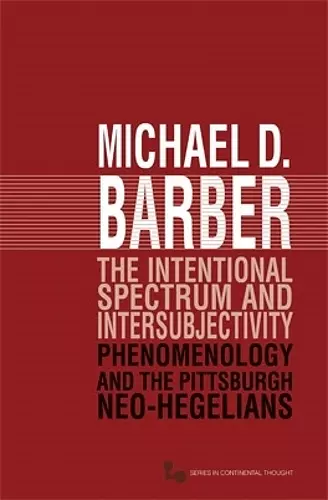The Intentional Spectrum and Intersubjectivity
Phenomenology and the Pittsburgh Neo-Hegelians
Format:Hardback
Publisher:Ohio University Press
Published:18th May '11
Currently unavailable, and unfortunately no date known when it will be back

World-renowned analytic philosophers John McDowell and Robert Brandom, dubbed “Pittsburgh Neo-Hegelians,” recently engaged in an intriguing debate about perception. In The Intentional Spectrum and Intersubjectivity Michael D. Barber is the first to bring phenomenology to bear not just on the perspectives of McDowell or Brandom alone, but on their intersection. He argues that McDowell accounts better for the intelligibility of empirical content by defending holistically functioning, reflectively distinguishable sensory and intellectual intentional structures. He reconstructs dimensions implicit in the perception debate, favoring Brandom on knowledge’s intersubjective features that converge with the ethical characteristics of intersubjectivity Emmanuel Levinas illuminates.
Phenomenology becomes the third partner in this debate between two analytic philosophers, critically mediating their discussion by unfolding the systematic interconnectionamong perception, intersubjectivity, metaphilosophy, and ethics.
“Michael Barber's The Intentional Spectrum and Intersubjectivity: Phenomenology and the Pittsburgh Neo-Hegelians carefully and thoroughly analyzes for the first time ways in which Brandom's and McDowell's thinking, particularly about perception, can be illuminated by phenomenological thought, particularly that of Husserl and Levinas. An
impressive scholarly accomplishment and a solid contribution to contemporary phenomenological analysis.”
ISBN: 9780821419618
Dimensions: unknown
Weight: unknown
368 pages